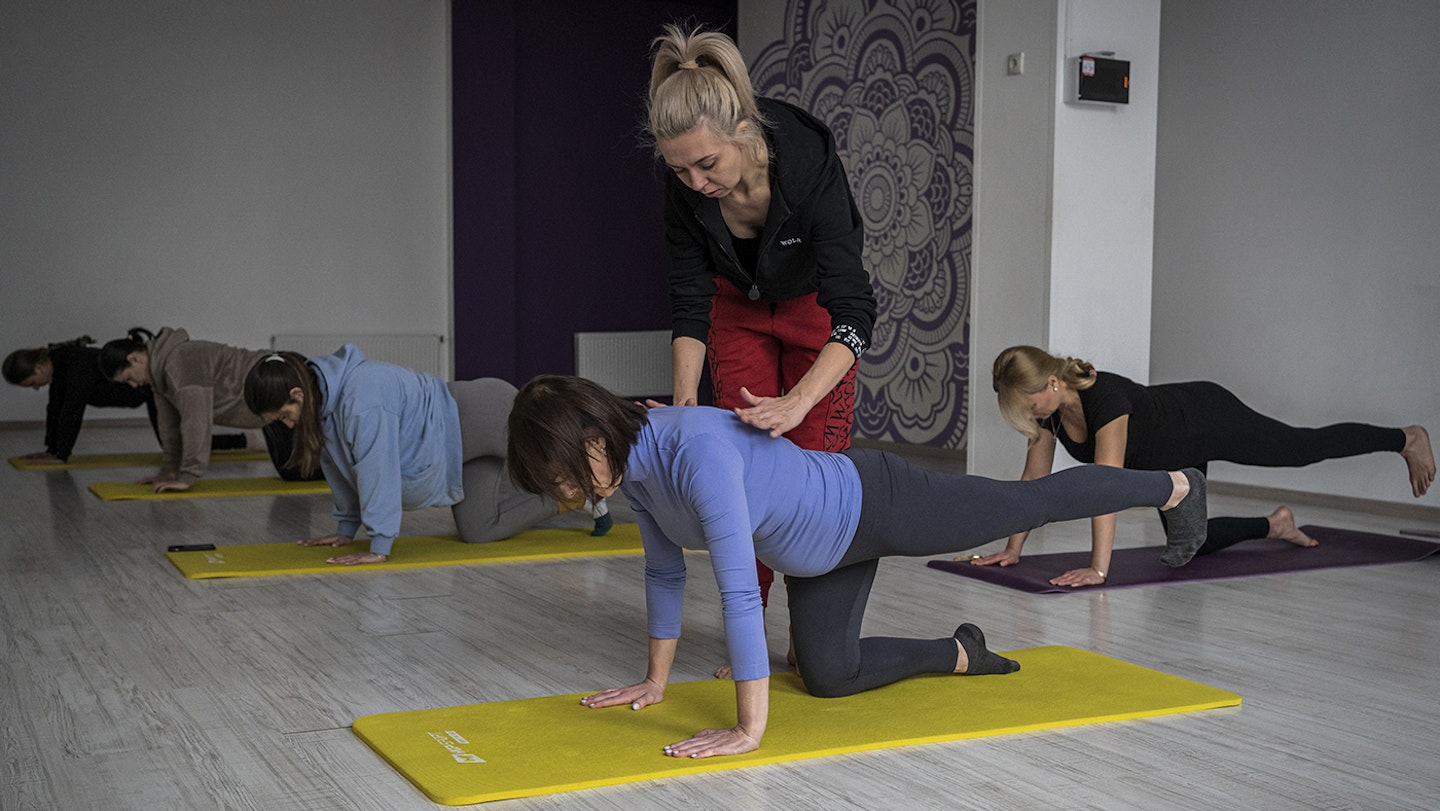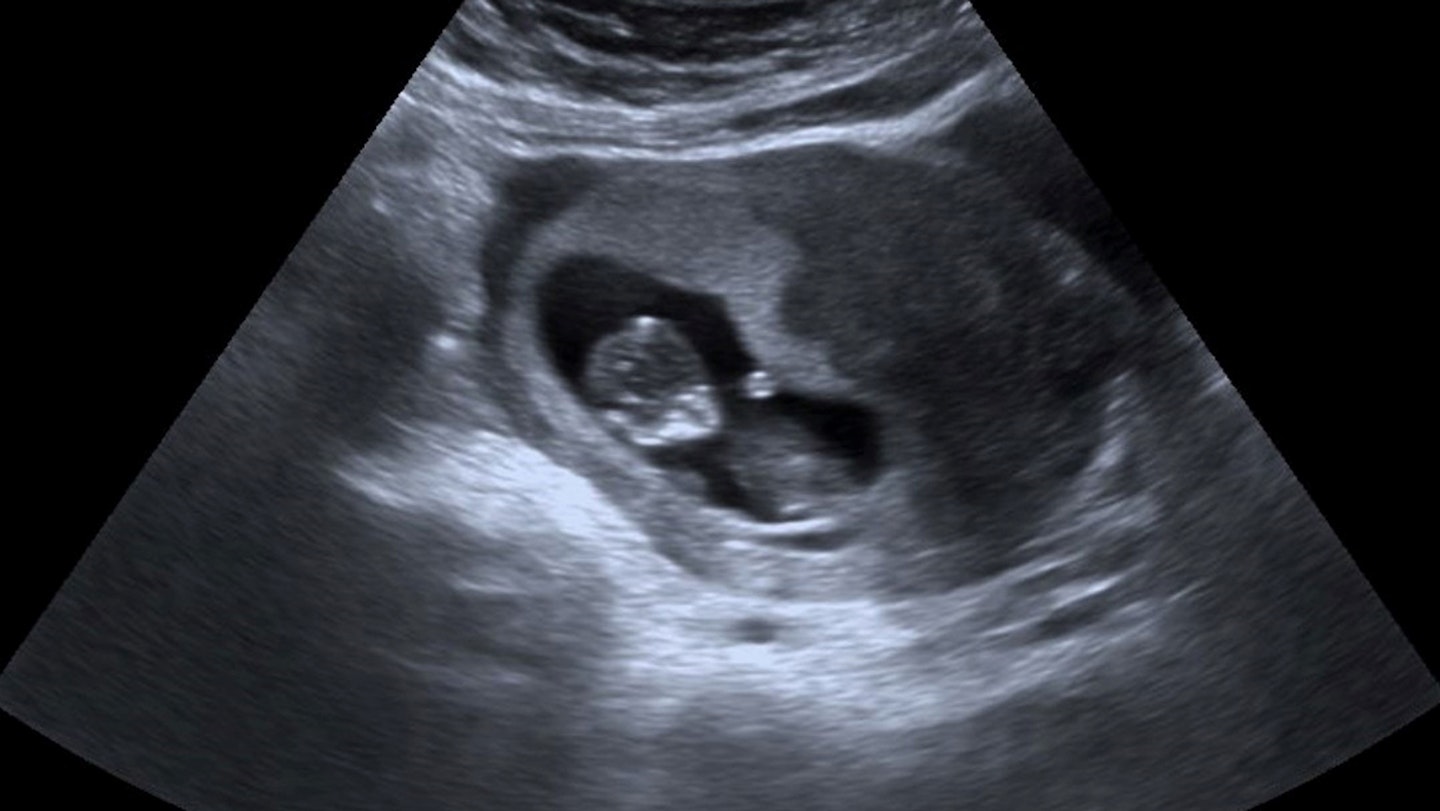
Medically Reviewed by: Dr Ayanthi Gunasekera
You are now 10 weeks pregnant and might be starting to notice signs of a baby bump. You've hopefully had your first midwife appointment too, to discuss everything about your pregnancy journey with your midwife.
Here’s what’s happening to you and your baby and what to look out for when you're 10 weeks pregnant: ultrasound, bump size, symptoms and more.
What's 10 weeks pregnant in months?
At 10 weeks pregnant, you're almost three months pregnant, so already a third of the way along!

How big is my baby at 10 weeks?
"Your baby is about 30 mm long, roughly the size of a small apricot," says Ayanthi Gunasekera, consultant obstetrician and gynaecologist. At this stage, your baby can officially be referred to as a foetus!
Baby development at 10 weeks pregnant
Human-like appearance
This week, your baby is starting to look more human. "By the 10th week of pregnancy, or eight weeks after conception, your baby's head has become rounder," says Ayanthi, "although there will still be a noticeable bulge on their forehead due to brain development."
Bone and cartilage formation
Bones and cartilage are forming, and your baby is starting to develop knees and ankles. "Your baby can now bend his or her elbows," Ayanthi adds. Despite these developments, your baby is still too small for you to feel any movements. Toes and fingers lose their webbing, become longer, and the eyelids and external ears continue to develop.
Tooth development
Although your baby won’t get their first teeth until around six months after birth, this week marks the beginning of tooth formation under the gums.
Gender-specific developments
If you are expecting a boy, he will already be producing testosterone.
Heart and movement
Your baby's heart is now fully formed and beating rapidly at around 180 beats per minute, approximately three times your heart rate. "The baby will be making jerky movements, which can be seen on a scan," says Ayanthi.

10 weeks pregnant symptoms
Morning sickness
"While some women experience relief from morning sickness around this time, others may still be dealing with nausea and vomiting," says Ayanthi. "Morning sickness can persist into the second trimester."
Headaches
If you're suffering from week 10 pregnancy headaches, you're probably not alone. This is a fairly common side effect of early pregnancy and could be due to an increase in oestrogen, blood production, or even cutting down on caffeine. If the headaches are severe or are accompanied by problems with vision, pain below your ribs, vomiting, or swelling of the face, hands or feet, call your maternity unit or GP as this can be a symptom of pre-eclampsia.
Constipation
This unpleasant side effect is a common one during the first trimester. Steer clear of foods that will make it worse, like bread, rice and pasta and focus on packing your diet full of whole grains and fruit.
Cramps
10 week pregnancy cramps can feel a little like period pain or a stitch and can come and go or stick around all day - they're all part of your hormonal changes, but speak to your doctor if you also have bleeding or pain when you pee.
Mood swings
Be warned, those pregnancy mood swings will be felt most during the first trimester and for the final few months of pregnancy. You’ll have a break soon, but for now, get used to feeling rather over-emotional. "Emotional changes are common during pregnancy. Ensure you have a support system in place and communicate openly with your healthcare provider," recommends Ayanthi.

Fatigue
Exercise during pregnancy is important this week, but so is resting. In about a month, you’ll be feeling less tired, but for now, listen to your body and get an early night or two. Don't forget to do squeeze sometime doing your kegels!
Heartburn
Another one you’ve probably already experienced by week 10, but in order to prevent pregnancy heartburn, try not to lie down too soon after you finish eating, no matter how tired you may feel!
Vaginal discharge
Another one caused by those pregnancy hormones, expect white, milky discharge as more blood flows to your pelvic area. Another one not to worry about, it’s completely harmless. If you spot brown discharge at 10 weeks pregnant, it can be a sign of infection, so speak to your GP or midwife.
Feeling faint or dizzy
One side effect of all this extra blood pumping around your body is that you may feel faint or dizzy. Remember to sit down as soon as you feel light-headed, and to keep your blood sugar levels up by snacking.
Round ligament pain
This is a fancy way of saying ligament pain as your belly expands. This can be dull or sharp, but is very normal. The best thing to do to ease round ligament pain is sit down and put your feet up, as it’s caused by the growing weight of your baby.
Lower back pain
Lower back pain at 10 weeks pregnant is a common symptom and shows your body is getting ready to grow a baby. The ligaments in your body start to soften and stretch, but this can put more strain on your joints, which is why you might be feeling aches and pains in places like your lower back at 10 weeks pregnant.
Spotting
Bleeding at 10 weeks pregnant isn't necessarily a bad sign, but it does depend on the type and amount of blood. It's not uncommon to see a little light spotting at 10 weeks pregnant, but heavier bleeding can be cause for concern, so contact your GP or midwife if you're worried.
Your body at 10 weeks pregnant
At 10 weeks pregnant, symptoms caused by a surge of pregnancy hormones will start to affect your body.
Constipation
The muscles in your bowel have relaxed, often causing constipation. To alleviate this, eat plenty of fibre, drink lots of water, and maintain regular exercise.
Baby bump
It's time to take a look in the mirror, as you might notice the first signs of a growing baby bump this week!
"Your uterus is expanding to accommodate the growing foetus. This may lead to a noticeable rounding or fullness in your lower abdomen. You may be struggling to do up your jeans," explains Ayanthi.
However, bump visibility varies from person to person, so don’t worry if you’re not seeing signs yet—you will soon. Expect more frequent urination due to the pressure your growing uterus exerts on your bladder.
Sore breasts
"Your breasts may continue to undergo changes, becoming more tender and increasing in size. The areolas may darken further," says Ayanthi. These changes are due to hormonal shifts preparing your body for breastfeeding.
Varicose veins
You might notice your veins becoming more prominent, especially if you have fair skin. This can appear on the breasts and abdomen. It’s your body’s way of getting extra blood to your growing foetus and is completely normal.
Spider naevi
Look out for spidery red lines, known as spider naevi, on your upper arms and chest. These are caused by the pregnancy hormone oestrogen, which dilates your blood vessels. They usually disappear after pregnancy, so try not to worry.
Skin changes
Higher levels of progesterone can cause dry skin, pregnancy acne, and spots. These skin changes are common and usually temporary.

Looking after you at 10 weeks pregnant
Eat well and drink up
"If you are having symptoms such as bloating or heartburn, eat small meals regularly and avoid eating late at night," advises Ayanthi. "Avoid spicy or fatty foods."
Prioritise healthy eating. Fill your plate with a mix of fruits, veggies, whole grains, lean meats, and dairy. These foods are packed with the nutrients you and your baby need. Stay hydrated. Aim for about eight glasses of water a day. It’s a simple way to help with that tired, queasy feeling.
Get some sleep
Try to go to bed and wake up at the same time each day to get a good night’s sleep. A calming bedtime routine can make a big difference. We know pregnancy insomniacould get in the way, make sure you have a calming, relaxing sleep environment and hold off on the caffeine. Get some naps too if you’re feeling drained during the day, a short nap can be a real lifesaver.
Engage in light activities
Activities like walking or joining a prenatal yoga class can help boost your mood and energy levels. Simple stretches can ease any tightness and help you stay comfortable.
Look after your mental health
Spend a few minutes each day doing some deep breathing or meditation to keep stress at bay. Make sure to chat with friends or family about how you're feeling. It’s great to share your experience and get support.
Get more vitamin D
As we mentioned above, your baby is growing their teeth this week! If your diet is low in Vitamin D, now’s the time to talk to your doctor about pregnancy vitamins and supplements.
Prioritise comfort
"As your body continues to change, you may find it more comfortable to wear maternity clothing. Invest in comfortable and supportive nursing and maternity bras and consider loose-fitting, breathable clothing."
What to expect at your 10-week scan
You'll be offered two NHS ultrasounds during the duration of your pregnancy. The 12-week scan will be the first time you see your little love, and then the 20-week anomaly scan, where you may choose to find out your baby's gender.
If you just can't wait, you may choose to book a private scan to get an early peek. If you were to take some 10-week pregnant scan pictures, you could expect to see the development of your baby's features - they're only around 3cms but their limbs have formed, and you may be able to spot the outline of their ears.
They're also on the move, so you might spot those little limbs kicking (though not hard enough to feel just yet). In fact, your 10-week pregnant ultrasound may look something like this photo:

Pregnant women will be booked in for a dating scan between 10-14 weeks pregnant, often referred to as the '12-week scan'. If you haven't got a date already, make sure to get in touch with the hospital to confirm yours is booked in. This scan is the first in-depth look at your growing baby and assesses the early development in the womb.
How common is a miscarriage at 10 weeks?
An early miscarriage is one that happens before 12 weeks, and while the risk of miscarriage at 10 weeks pregnant varies, the chances of having a miscarriage are lower as your pregnancy progresses. A study in the American Journal of Epidemiology found that in the second half of the first trimester (between 8-13 weeks), the rate of miscarriage was 2–4%. You know your body best, so if you're worried about any symptoms, always speak to your GP or midwife.
About the expert
Dr Ayanthi Gunasekera is a senior obstetrics and gynaecology (O&G) trainee (ST7) in North and East London at Barnet and Chase farm Hospitals NHS Trust. She has a keen interest in medical education and has a PG certificate in Medical Education.
About the author
Emily Gilbert is the Features & Reviews Editor for Mother&Baby and has written for the website and previously the magazine for seven years. Emily writes about everything from the top baby products to pregnancy, fertility and maternal mental health. Specialising in product reviews, Emily is the first to know about all the exciting new releases in the parenting industry.
